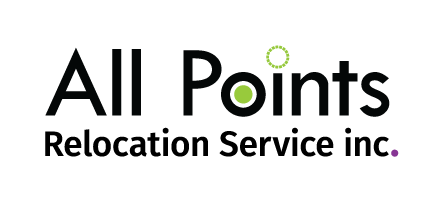Artificial Intelligence (AI) has been a transformative force across various industries, and corporate relocation is no exception. From optimizing logistics to enhancing employee experience, AI holds significant potential to revolutionize how companies manage relocations. There have been seminars on (all with lots of dangling questions, and unconvincing stories of the efficacy of its current usage) However, the adoption of AI in this field is not without its challenges and concerns. This article explores the opportunities and pitfalls of leveraging AI in corporate relocation, providing a balanced view of its future in this domain.
Opportunities in AI-Powered Corporate Relocation
- Enhanced Personalization: AI can analyze vast amounts of data to tailor relocation packages to individual needs. By considering factors such as family size, lifestyle preferences, and destination-specific nuances, and even more, AI can recommend personalized service maps, appropriate personnel, appropriate vendors, thereby improving the overall relocation experience.
- Cost Optimization: By analyzing historical data and current market trends, AI can help companies forecast and control relocation expenses more accurately. This includes identifying cost-effective housing options, negotiating better deals with service providers, and optimizing travel arrangements. (This has greater impact if you relocate 1,000 per year, compared to 15 – 100 per year – current technology can easily handle the latter)
- Improved Compliance and Risk Management: AI can assist in navigating the complex regulatory landscapes of different countries. It can ensure that all necessary documentation is in place, compliance requirements are met, and potential legal risks are mitigated. This is particularly valuable for global mobility programs that involve multiple jurisdictions. (Are we sure we are ready to trust AI over an immigration specialist with something this sensitive?)
- Cultural Sensitivity and Communication: AI-powered language and cultural translation tools can help tailor communications to the cultural context of the destination country. This can improve the reception and integration of employees in their new environment, fostering better relationships and a more seamless transition.
Drawbacks and Considerations
Despite its potential, the application of AI in corporate relocation comes with significant challenges that must be carefully managed:
- Accuracy and Reliability: One major concern is the accuracy of AI outputs. While AI can process and generate content quickly, it may not always be correct. For example, a company using AI to craft culturally sensitive emails to South Korean employees might inadvertently produce content that is factually incorrect or culturally inappropriate. Such errors can lead to misunderstandings and even offense, highlighting the need for human oversight and verification.
- Data Privacy and Security: The use of AI involves handling large amounts of personal data, which raises concerns about data privacy and security. Companies must ensure that their AI systems comply with data protection regulations and that robust security measures are in place to prevent data breaches.
- Large amounts of data and low volume corporate programs do not mix: If you have 200 relocations pe year, there is some serious data to mine, especially over 3 years. However, first, what do you want to data mine? Does your relocation company capture that data? But even more than this, low volume corporate programs do not have large data to mine even across three years. Using such data mining strength on other company’s data brings up again the thorny issue of privacy, but even if we get beyond that, are the results of that data mining and analysis appropriate for your company’s practice? Probably not.
- Bias and Fairness: AI systems can inherit biases from the data they are trained on, leading to unfair or discriminatory outcomes. In the context of relocation, this could result in biased recommendations or decisions that negatively impact certain employees. It is crucial to regularly audit AI systems for bias and implement measures to promote fairness and inclusivity.
- Dependency and Skill Degradation: Over-reliance on AI can lead to a degradation of human skills and judgment. While AI can automate many tasks, the nuanced understanding and empathy required in relocation services cannot be fully replicated by machines. Maintaining a balance between AI automation and human expertise is essential.
- Ethical Considerations: The deployment of AI must be guided by ethical principles to ensure that it serves the best interests of all stakeholders. This includes being transparent about AI’s role in decision-making processes and ensuring that employees are informed and comfortable with its use.
Conclusion
AI undoubtedly presents exciting opportunities for enhancing corporate relocation services. Its ability to personalize experiences, optimize logistics, control costs, and manage risks can significantly benefit both employers and employees. However, the integration of AI must be approached with caution. Ensuring the accuracy of AI outputs (how long will we need human oversight?), safeguarding data privacy, addressing bias, and maintaining ethical standards are critical to harnessing the true potential of AI in this field.
As the relocation industry continues to evolve, companies must strike a balance between leveraging advanced technologies and preserving the human touch that is so vital in supporting employees through one of the most significant transitions in their lives. By doing so, they can create a future where AI and human expertise work hand in hand to deliver exceptional relocation experiences.

